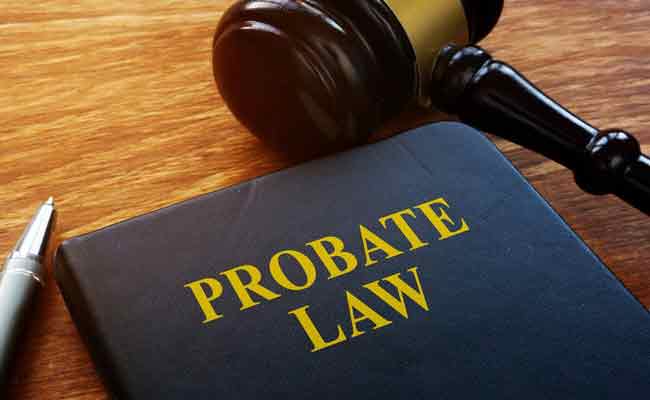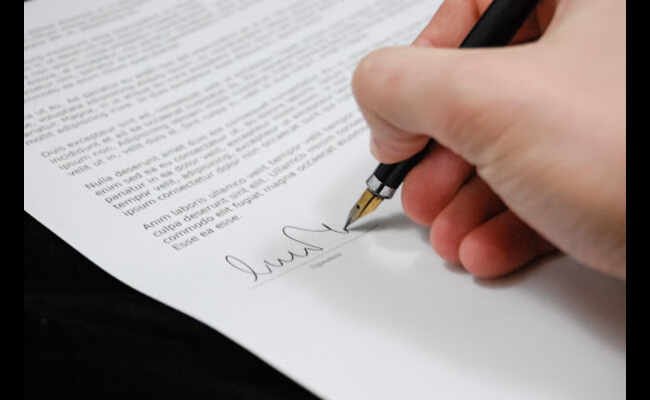
What Is The Writing Process?
September 1, 2022
Prepare for Emergencies With the Best Low-Cost Pre-settlement Funding
September 12, 2022What Are The Stages Of Probate In 2024 With All Details Of Probate Law? What is probate is certainly one of your first inquiries if you’re involved in an estate settlement? The legal procedure known as probate specifies how the departed person’s assets will be dispersed following their death.
The executor designated in the will often take on the responsibility of managing probate. The state court will determine the inheritance laws if there is no will.
Although the procedure and time frame will differ from state to state, the following stages are generally required by probate legislation.
What Are The Stages Of Probate In 2024 With All Details Of Probate Law?
1. Submit A Petition To Start The Probate Process
You must submit your request in the region where the dead individual resided at the time of their passing. The documentation will seek your official recognition as the estate’s lawful executor.
If there is a legitimate will, you must also submit it together with the petition as well as the death certificate.
Once the executor has been approved, the court will hold a hearing to consider any objections raised by any parties. If the court accepts you as the executor, the case will be formally opened, and you will then be allowed to represent the estate of the dead.
2. Inform Others
All debtors, beneficiaries, and heirs must get a notification in the mail that the estate is in probate, as ordered by the court. Some states could additionally mandate that you print an announcement in the newspaper.
3. Inventory Assets
Gather, list, and assess any assets that must go through probate and then offer them to the court.
- Money in a bank
- Retirement funds
- Bonds and shares
- Real estate
- Belongings, such as priceless art collections
4. Take Care Of Debts And Liabilities
Invoices for unpaid rent and/or salaries that are owed to the estate should be collected. Additionally, examine any unpaid invoices and debts to see if they and how they need to be paid. You might need to do some investigating for this.
Checkbooks, emails, and/or bank accounts may need to be examined to acquire information. Before paying any obligations, you must be sure the estate has enough assets to pay for them all. In that case, the state will give creditor claims priority.
Additionally, you’ll need to submit a final income tax return for the estate and pay any appropriate taxes. Setting up an estate account to cover the estate’s last obligations and costs is typically a smart idea.
5. Distribute Any Leftover Assets
You will distribute the remaining assets to the legal heirs or follow the terms of your will once all claims, obligations, and costs have been met.
6. Shut Down The Estate
You must present the court with receipts and documents of all distributions, after which you will petition for the estate to be closed and your liberation from the executorship.
Do You Require A Probate Lawyer?
A probate lawyer can assist you if you’d want some direction as you proceed.
A state-licensed attorney with experience assisting executors with estate administration is known as a probate lawyer.
You can get in touch with https://easlerlaw.com/probate if you are looking to get some help with your case.
Does The Probate Procedure Apply To Your Entire Estate?
Many assets can be removed from your estate with careful estate planning, facilitating their distribution and speeding up the process. If assets are subject to probate, it depends on how they are titled.
Any property that has identified beneficiaries passes exclusively to them and is not included in the estate. This includes beneficiary-named retirement schemes and life insurance contracts.
The majority of individuals hold their properties in the form of a “jointly with rights of survivorship” title. Therefore it also covers assets with such title.
Your estate planning lawyer will go through how the probate procedure functions in your state, how to create a last will and any necessary trusts, and how to divide your assets as effectively as feasible.
How Long Is The Probate Process?
Most estates will need roughly a year to do this. The size and intricacy of the estate will determine how long it will take precisely. International probate could be more difficult and often takes two to six years.
During the probate process, disagreements may occasionally arise between the executor, heirs, debt holders, or tax authorities. Your administration of the estate may be hampered by these disagreements.
What Is The Price Of Probate?
A probate lawyer will provide each client with a highly customized service. How much work you want them to complete will determine the price. In response to your inquiries, one among their team will:
- Depending on your needs as well as the size of the estate, determine the amount of work needed.
- Provide you a price quote before beginning any work
- If at all feasible, always strive to propose a fixed-fee price for your peace of mind.
Who May File A Probate Petition?
To handle the deceased’s estate, only the executor designated in their will may submit a request for probate. A probate attorney can submit an application for you if you have been designated executor but do not wish to handle the estate administration yourself.
A person is said to as intestate if they pass away without making a will. Who may apply to manage the estate in its place will be determined under the intestacy regulations.
If A Will Is Missing, Can You Still Get Probate?
Even if you cannot get a Grant of Probate in the absence of a Will, you may still manage the estate and divide inheritance using a somewhat different procedure.
The intestacy regulations specify who is eligible to request a Grant of Administration to manage the estate. The administrator decides how to divide inheritance when there is no Will to specify how the assets should be passed on.
These restrictions only allow for the inheritance of spouses, business associates, children, and some other close relatives.
Can A Will Be Amended After A Person Passes Away?
A legitimate will can be changed, but you can only alter the inheritance portion it has provided you. For instance, you could:
- Distribute particular assets to various individuals.
- Give up all of your assets.
- lessen the inheritance tax
- Create a family trust fund with your inheritance.
To achieve this, you must apply for a legal instrument known as a deed of variation. Altering a Will after death is a complicated process, so make sure you get in touch with a professional probate attorney to learn more about the details.




